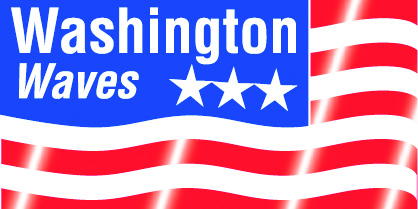Washington, D.C.—The Biden administration announced its much-anticipated final rule to establish a durable definition of “waters of the United States” (WOTUS) after legal challenges and regulatory uncertainty marked the two previous administrations’ efforts.
Judging from the immediate reaction, the administration appears to have fallen short of its goal.
Key players both in and out of Congress took up positions for and against the rule that tracked earlier positions on the controversial efforts by the Obama and Trump administrations.
According to the Environmental Protection Agency (EPA), the rule restores essential water protections that were in place prior to 2015 for traditional navigable waters, the territorial seas and interstate waters, as well as upstream water resources that significantly affect those waters.
EPA said while strengthening fundamental protections for sources of drinking water, the rule will support agriculture, local economies and downstream communities.
“Following extensive stakeholder engagement, and building on what we’ve learned from previous rules, EPA is working to deliver a durable definition of WOTUS that safeguards our nation’s waters, strengthens economic opportunity and protects people’s health while providing greater certainty for farmers, ranchers and landowners,” EPA Administrator Michael Regan said.
Assistant Secretary of the Army for Civil Works Michael Connor, whose agency also took a leading role, said the rule’s definition of WOTUS “will provide the clarity long desired by farmers, industry, environmental organizations and other stakeholders.”
Marty Durbin, senior vice president of policy at the U.S. Chamber of Commerce, expressed concern the new rule will do the opposite.
Durbin also cited the U.S. Supreme Court’s pending decision in the closely watched Sackett v. EPA case.
“The business community urges EPA and the Army Corps of Engineers to pause before taking any additional steps that would further complicate infrastructure permitting decisions,” Durbin said.
Sen. Shelley Moore Capito (R-W.Va.), the ranking member of the Senate Environment and Public Works Committee, described the new rule “as the latest round of regulatory overreach.”
Capito warned it unfairly will burden farmers, ranchers, miners, infrastructure builders and landowners.
While permitting and environmental process reform is badly needed, she said, the new rule moves backwards toward even more bureaucratic red tape.
Sen. Tom Carper (D-Del.), chairman of the Senate panel, welcomed the new rule, which he said was based on science and consensus.
Carper said he looks forward to working with the EPA and the Corps of Engineers to ensure they apply Clean Water Act regulations in a clear and predictable way.
To boost coordination in implementing the new rule, the EPA and the Corps issued a joint coordination memo to ensure the accuracy and consistency of jurisdictional determinations under the rule.
They also announced a memo with the Department of Agriculture to provide clarity on the agencies’ programs under the Clean Water Act and Food Security Act.
Additional information can be found at www.epa.gov/wotus.
House On Hold
Traditional first-day business in the House came to a halt as around 20 GOP holdouts blocked California Republican Kevin McCarthy’s election as the next speaker.
Over two days of voting, McCarthy six times fell more than 15 votes short of the 218 needed to win the top job.
Without a speaker in place, the House cannot organize itself or even pass a rules package that is traditionally approved on the first day of each new Congress.
Those elected to the House in November could not take the oath of office to become official members of that chamber.
WRDA Welcomed
President Biden signed into law a major defense bill that included the fifth consecutive biennial Water Resources Development Act (WRDA).
Rep. Peter DeFazio (D-Ore.), the retiring chairman of the House Transportation and Infrastructure Committee, described WRDA 2022 as the most ambitious to date.
“It will help ease supply chain issues, create good-paying jobs and promote environmental responsibility,” DeFazio said.
Tracy Zea, president and CEO of the Waterways Council Inc., also welcomed Biden’s signing of WRDA.
“The good news is WRDA is starting to become muscle memory for Congress, with this being the fifth bill signed into law in the last 10 years,” Zea stated in WCI’s latest Capitol Currents newsletter.
“Before 2014, there was only one WRDA signed into law since 2000.”
Still, he noted the smaller vote totals for WRDA in recent years (417 yeas in 2014 in the House compared to 384 in 2022), blaming few policy changes and the backlog of projects for making it easier for members of Congress to vote against it.
The National Defense Authorization Act also included legislation reauthorizing the Coast Guard and the Maritime Administration.
DeFazio singled out Coast Guard provisions that include resources to support ports and waterways and expand the service’s capabilities in the Arctic, such as funding for a third Polar Security Cutter and an icebreaker.
Omnibus Package Signed
Federal agencies were assured funding for the remaining months of fiscal year 2023 when President Biden signed the 4,000-plus-page, $1.7 trillion omnibus package.
Rep. Marcy Kaptur (D-Ohio), chairman of the House Energy and Water Appropriations subcommittee, said the funding measure also included her language to create the Great Lakes Authority.
Kaptur said the authority will operate as a federal regional commission dedicated to advancing solutions to the economic and environmental challenges facing the eight states of the Great Lakes region.
According to the House Appropriations Committee, the legislation provides $10.6 billion—$347 million more than in 2022—for water infrastructure through the Corps of Engineers and Bureau of Reclamation.
Bridge Work
The Illinois International Port drew attention during the Biden administration’s effort to promote work on significant bridges across the country.
Vice President Kamala Harris visited Chicago to talk about a project to refurbish four bridges crossing the Calumet River.
Mitch Landrieu, the White House infrastructure implementation coordinator, spoke to reporters about the critical role the drawbridges play for getting marine traffic to and from the port, one of the largest in the world.
As part of his effort to promote the bridge projects, President Biden visited Kentucky and that state’s senior senator, Republican Mitch McConnell.




